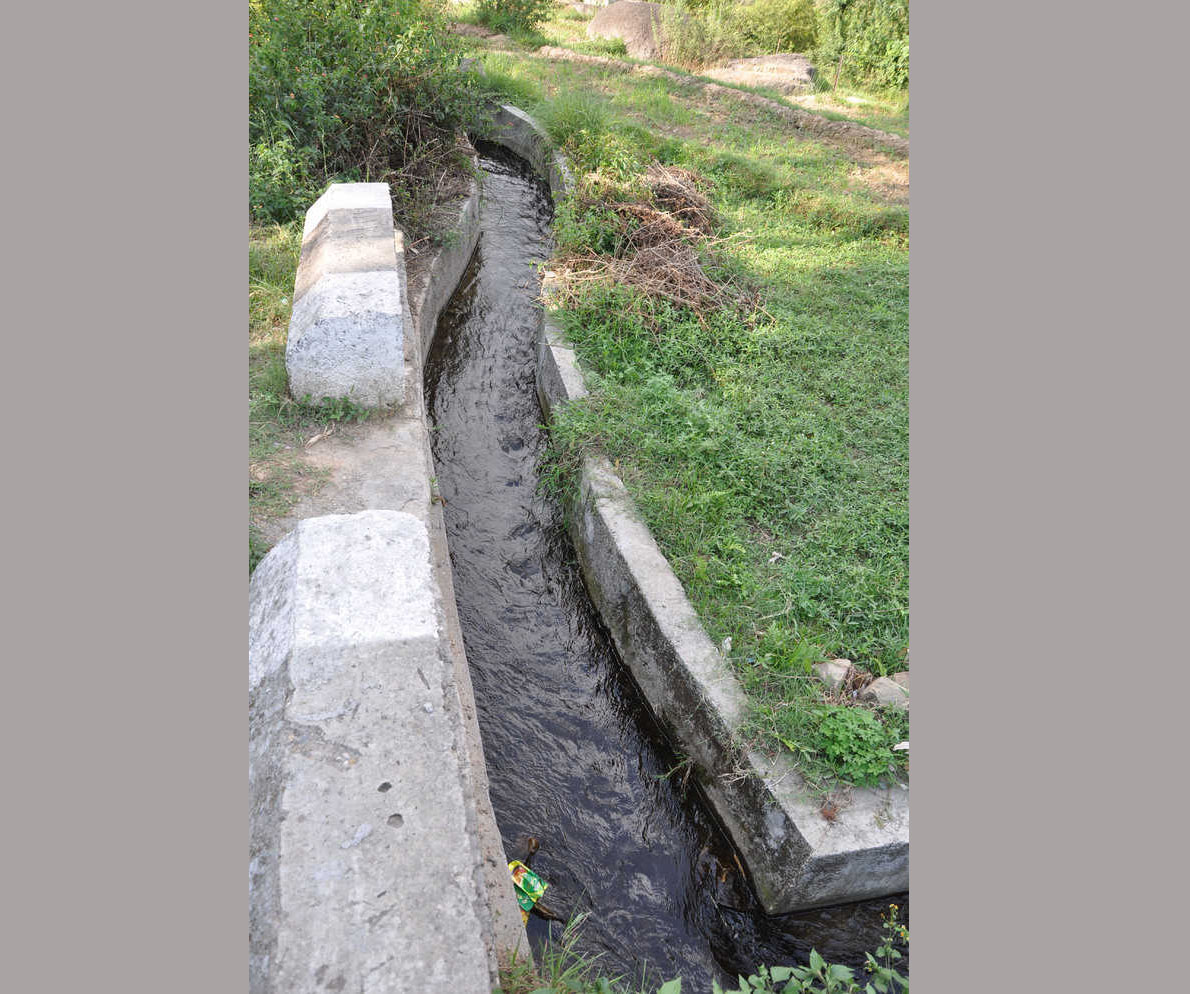Bilal Bashir Bhat
Irrigation Kuhls/canals the community-owned irrigation channels of Jammu and Kashmir, now have lost their importance over time. It is because people have illegally encroached and filling them for their own use. These kuhls once irrigated thousands of agricultural and household needs of the villages are now dying. Farmers in J&K have for centuries relied on community-managed kuhls systems for irrigation channels for their rice farming, wheat and other livelihood household activities.
Irrigation, the process of artificial supply of water to crops, is an age-old practice in the state. The farmers are quite conscious of the significance of irrigation as a means to achieve an effective break-through in the development of agriculture. Access to water is a significant factor for the survival of farmers and villagers as they are dependent on it.
Irrigation plays an important role in the Agriculture and Horticultural sector of J&K economy. Jammu and Kashmir do not receive rain throughout the year, in valley of Kashmir it rains mostly in winter when temperature is too low for plant growth. When the temperature begins to rise in May and onwards, the rainfall decreases and except some showers of rain in July-August, most of the growing season remains dry. Since ages, the farm economy has been dependent on a single crop and the cultivator cannot take chances with it. The farmer always requires sufficient water supply for his fields, therefore, he depends mostly upon kuhls and canals for irrigation.
The Zamindari canals, locally called as Kuhls are constructed and maintained by the farmers. The total number of such canals is 2,827 which irrigate nearly 60 per cent of the total irrigated area of Kashmir Division. Changes in the past few decades have posed a challenge to the functioning of the kuhls/ canals. With the passage of time these canals and Kuhls are encroached by the local people leading farmers to change their land use patterns from agriculture to Horticulture and other activities. The small streams running through the village are decreasing in width and depth due to daily filling by the villagers without thinking of the poor farmers and other people who are totally dependent on such structures for their livelihood and these streams / Kuhls are also the major source of drinking water for most of the people. These kuhls/ canals are now turning into drains where people dump their daily waste making the water unfit for drinking and other household purposes.
While villagers get tap and well water at homes, agriculture is no longer a profitable livelihood option is another cause of deterioration of these irrigation structures in valley. People are now planting popular, willow and other tree species on the embankments of them Kuhls which become difficult for the authorities to clean and widen them. With passage of time, we have lost hundreds of these irrigation facilities especially in villages of J&K.
Many times, the Revenue, Irrigation and Flood Control, Jal Shakti departments of J&K have eried to recover the illegal encroached land of Kuhls but failed. I am an eye witness when few years ago these stakeholder departments jointly acted and cut the trees alongside the embankments of these water bodies but then they did not come forward to widen and drugging these water channels and result was the continuous devastating floods in the Balkul channel in Pattan areas which destroyed thousands Kanals of agricultural and horticultural lands of farmers. This led to change the land use pattern by farmers as siltation has totally destroyed the agricultural lands in these areas. This happens when there is no proper planning and management by authorities. The stakeholder departments must come forward to protect these kuhls and canals with proper planning to further protest the encroachment in such crucial irrigation structures and those who deliberately occupy these structures should be punishable under law. So that in future no one dares to occupy and encroach these kuhls and canals which are lifeline for farmers and people who are dependent on them.


